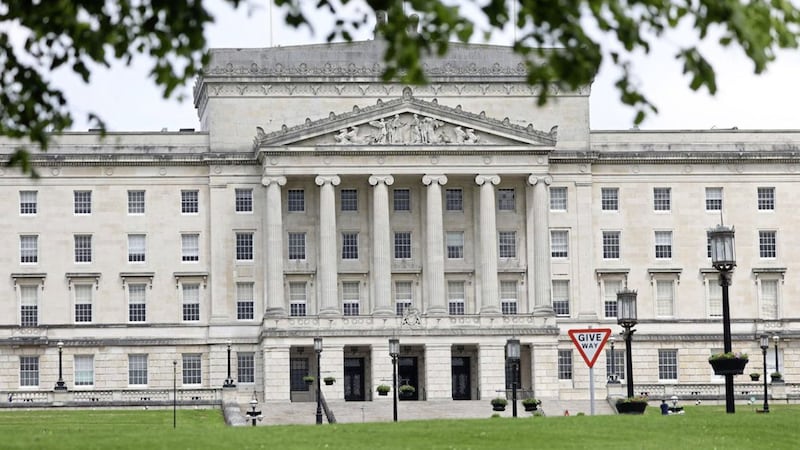Despite this week’s sham fight, it would be wrong to close Stormont. Just take away its powers and let it concentrate on what it does best - sectarian mud wrestling.
Our political parties have been burdened since 1998 with distractions such as health, education, agriculture and the economy. It is now time to remove these administrative millstones and let them focus on their priority: rolling around in the sectarian mire, intoxicated with power, high salaries, expenses and subsided food, confident in the knowledge that flag-waving will keep them there for life.
Close our beloved Stormont? Of course, not. We should keep it open for tourists to witness the re-enactment of the Dark Ages, when Barbarians attacked enlightenment and the Church outlawed reason as a means of acquiring knowledge.
You can see that this column is less than enamoured by this week’s threat to Stormont, in what would have been its sixth collapse in 20 years. (Lesson: sectarianism generates political poverty.)
The current dispute over Irish is an argument based not on power-sharing, but on ignorance-sharing. The language was non-sectarian before the Good Friday Agreement, which preached reconciliation, but enshrined the sectarian division with which Britain has ruled here for centuries.
The agreement gave everything a sectarian label. The Irish language became Catholic. Protestants were labelled with the Ulster Scots dialect.
Nobody attempted to cultivate the historical common ground on Irish, which would have allowed it to be owned by everyone, with an Irish Language Act arising as a matter of course. Instead a valuable cultural asset was reduced to just another piece of raw meat to be tossed into the sectarian bear pit at Stormont.
Protestants have a proud record in promoting Irish. Elizabeth I had some Irish, largely to convince Tyrone Gaelic Chieftain, Shane O’Neill, to support English rule in Ireland. (This week another Tyrone O’Neill agreed to something similar.)
Following the Ulster Plantation, Scottish settlers spoke mainly Scots Gaelic and conversed with Irish speakers. (Now their political representatives cannot communicate with each other in English.)
In 1808, William Neilson, a Presbyterian minister, published his acclaimed Introduction to the Irish Language. He was later Professor of Irish at Belfast Academical Institution. In 1838 the Presbyterian Church agreed that student ministers would be examined on their knowledge of Irish.
It is all a far cry from the ignorance of the DUP’s Gregory Campbell and the Catholic Church’s apathy, which hindered an Irish language version of the bible until 1981. (Maybe they remembered Patrick Pearse’s wish that one day the children of Sandy Row would curse the Pope in Irish.)
The issue has been exacerbated by the DUP’s cultural and historical ignorance. But since SF has not threatened to collapse Stormont on any other issue, it stands accused of using Irish as a sectarian weapon, in the odd belief that a divided North is the best way to a united Ireland.
SF abstains from Westminster because it does not recognise its authority in Ireland. So asking Westminster to use Irish as an escape route from an early election appeared particularly cynical. Sadly, their attitude demeans the language and unfairly tarnishes the genuine Gaelgeoirí within the party.
Meanwhile, hospital waiting lists, the Delta variant, climate change and Covid restrictions remain relegated. Without an assembly opposition, MLAs “debate” policies, which have already been agreed at executive level, in a form of occupational therapy for the politically less abled.
The old Stormont was built on anti-Catholic discrimination, but after 1945 it delivered a comprehensive welfare state, including a first class NHS. The new Stormont has abandoned its people.
So if we remove Stormont’s powers who would run the place? Robin Swann could run health without the executive’s hindrance and civil servants could manage the rest. (Did anyone notice when MLAs were absent for three years recently?)
That would allow the parties to concentrate on their mud wrestling. It would even encourage them to agree a common manifesto for the next election: we need more mud.









